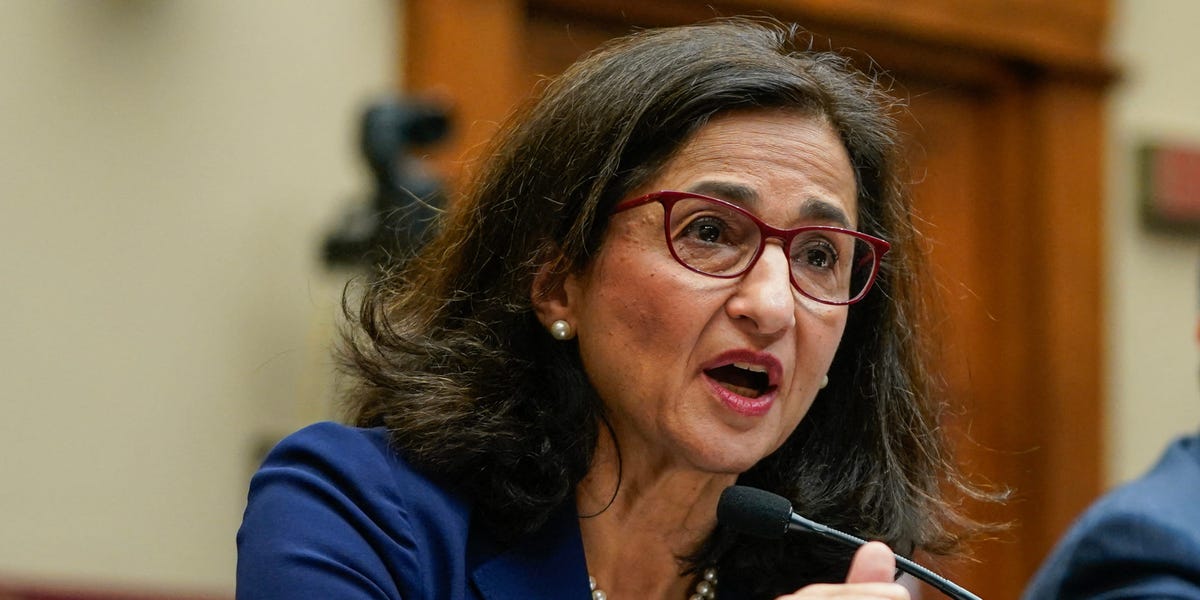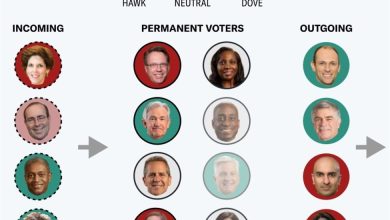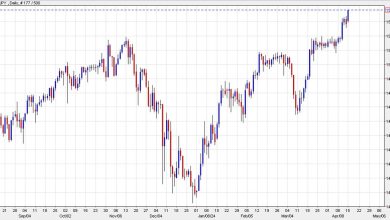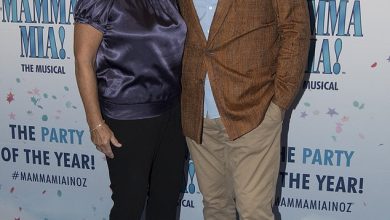Columbia President Avoids Missteps of Other Elite Colleges

- The president of Columbia University has taken a much stronger stance against anti-Semitism than her peers.
- She told Congress on Wednesday that calling for Jewish genocide would violate Colombia’s policy.
- The presidents of MIT, Harvard, and UPenn hesitated when asked the same question.
In her testimony before Congress on Wednesday, the president of Columbia University avoided making the same viral mistakes her fellow university presidents made during their hearings last year.
Nemat “Minouche” Shafik, President of Columbia, appeared before the Republican-led House Committee on Education and Workforce on Wednesday. Republican members of the committee, including New York Rep. Elise Stefanik, harshly criticized America’s elite universities, accusing their leaders of failing to protect students from anti-Semitic hate speech.
Shafik was called to Congress to discuss her school’s response to anti-Semitism on campus following Hamas’ attack on Israel on October 7 and the Israeli war in Gaza that followed. The presidents of UPenn, Harvard and MIT testified before Congress in December for the same reason.
But there was a big difference between what those presidents said in their hearing and what Shafik said in his. During his four-hour testimony, largely devoid of headline-grabbing moments, Shafik took a much tougher stance against anti-Semitism than his peers.
When asked if students calling for the genocide of the Jewish people would violate Columbia’s rules, Shafik and three other Colombian leaders testifying with her all said yes, it would. Shafik added that any student who called for Jewish genocide would be punished.
The presidents of MIT, Harvard and UPenn, on the other hand, were taken aback when asked the same question during a five-hour session in December – and two of them suffered the consequences .
Harvard President Claudine Gay responded, “It may be, depending on the context,” while MIT President Sally Kornbluth said, “I have not heard a call for genocide of the Jews on our campus. ” In a similarly mild response, UPenn President Elizabeth Magill responded: “If speech turns into behavior, that may be harassment. »
All three presidents were harshly criticized for their responses, which many said did not adequately condemn hate speech. The backlash led to the resignations of Gay and Magill, while Kornbluth has so far managed to retain his position.
Shafik was invited to the December hearing but was unable to attend because she was speaking in Dubai at the time, the Wall Street Journal reported.
And it gave her more than just extra time to prepare: she also had the benefit of witnessing the consequences her peers faced and making sure she avoided their mistakes.
She was particularly clear. On Tuesday, the day before her hearing, Shafik wrote an article in the Wall Street Journal in which she explained the complexities of protecting free speech and political expression while ensuring student safety and condemning discrimination .
“Calling for the genocide of a people – whether Israeli or Palestinian, Jewish, Muslim or anyone else – has no place in an academic community,” Shafik wrote in the Journal. “Such comments go beyond the bounds of legitimate debate and are incredibly harmful.”
During Wednesday’s hearing, Shafik also commented on some controversial professors. She said Mohamed Abdou, a visiting professor at Columbia’s Middle East Institute, would “never work at Columbia again” after expressing support for Hamas, Hezbollah and Islamic Jihad.
Shafik was also asked about a tenured professor in Columbia’s Department of Middle East, South Asian and African Studies, Joseph Massad, who previously called Hamas’ attack on Israel a “great”. Shafik said Massah was “questioned” about his comments. But when Stefanik pressed her on the issue, Shafik said she would return to the committee to find out whether Massad would be removed as chair of the academic review committee.
businessinsider





